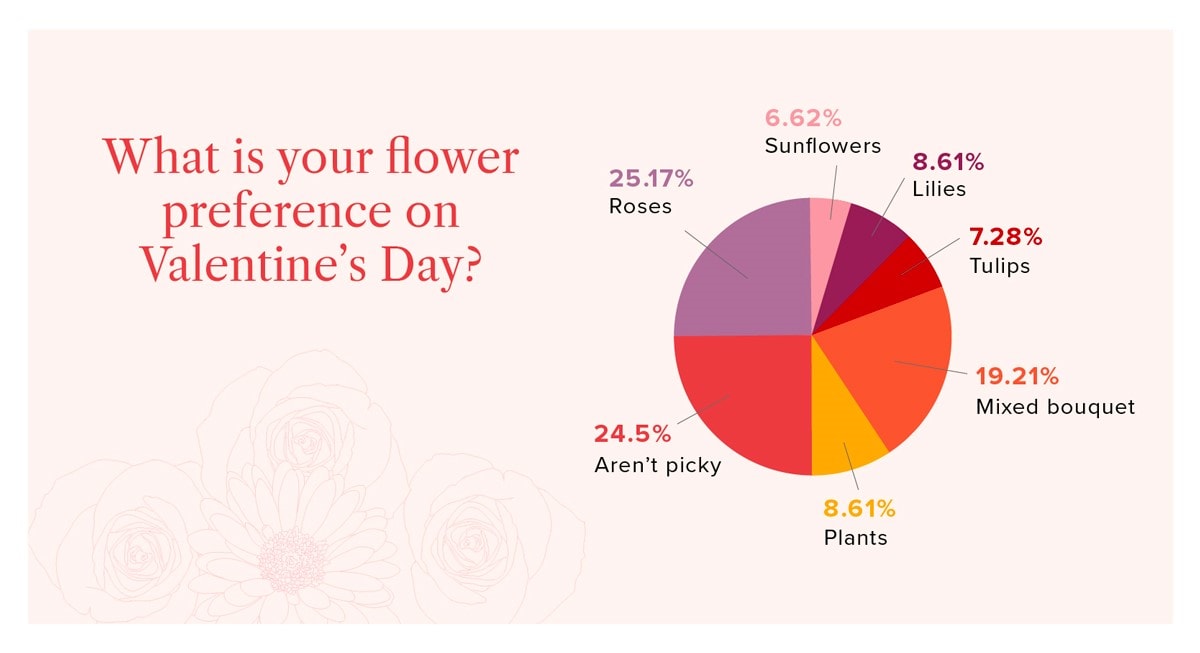Valentine’s Day is a day to celebrate love! This includes celebrating the love God has for us and the love He commanded us to spread. It’s a day that isn’t only about romantic love, as Jesus Christ himself mentions love 759 times in the NIV version of the Bible. Looking for a Valentines Day Sermon to spread the message of God’s love?
We’ve got a few great sermon outlines and ideas that will inspire you on the day of love! The messages can be simple, with an overall theme of God’s love for us.
Estimated reading time: 12 minutes
Table of contents
History of Valentine’s Day

Although there were a few Christian martyrs named Valentine, the day may have taken its name from a priest who was martyred about 270 CE by the emperor Claudius II Gothicus. According to legend, the priest signed a letter “from your Valentine” to his jailer’s daughter, whom he had befriended and, by some accounts, healed from blindness.
Different accounts hold that it was St. Valentine of Terni, a bishop, for whom the holiday was named, though it is possible the two saints were one person. Another common legend states that St. Valentine defied the emperor’s orders and secretly married couples to spare their husbands from war. It is for this reason that his feast day is associated with love.
Modern History

Today we celebrate Valentine’s Day each year on February 14th by sending cards or letters, giving gifts such as chocolate or flowers, and having meals in restaurants. Many adults see Valentine’s Day as an occasion to offer expensive gifts such as jewelry to their sweetheart. A young woman or young man may choose this day to express their love for the first time to the significant other.
It is also an ideal occasion for marriage proposals and weddings. School children often exchange Valentine’s cards and candy with their classmates. Sometimes, students make their own Valentine cards in class, usually decorated with images of hearts, red roses, or Cupid.

Messages, or Valentine’s, appeared in the 1500s, and by the late 1700s, commercially printed cards were being used. The first commercial valentines in the United States were printed in the mid-1800s. Valentine images commonly depict Cupid, the Roman god of love, along with hearts, traditionally the seat of emotion.
Is it okay for Christians to Celebrate?

There is no definitive biblical reason why Christians should not celebrate Valentine’s Day by giving their loved ones flowers, candy and/or cards. As with celebrating any holiday, the decision should be between the individual and God. Some people feel very strongly that observing any secular holiday is wrong, while others see it as harmless. The important thing to remember is that celebrating or not celebrating holidays should not be a cause for pride or division among Christians.
Valentine’s Day started with a connection to Christianity but there is an awful lot of information to wade through to find the truth. The details within the stories connecting it to Christianity are difficult to prove.
Nevertheless, Valentine’s Day is connected to Christianity, but not solely.
What Does This Mean?
Whatever Valentine’s Day means to you, it is for you to decide. I think it’s a great opportunity to celebrate love, whether it be for family, friends, lovers, or neighbors because Jesus said that people would know us by our love.
A new commandment I give to you, that you love one another: just as I have loved you, you also are to love one another. By this all people will know that you are my disciples, if you have love for one another (John 13:34-35).
For God so loved the world, that he gave his only Son, that whoever believes in him should not perish but have eternal life (John 3:16).
And above all these put on love, which binds everything together in perfect harmony (Colossians 3:14).
Sermon Ideas for Valentine’s Day

Valentine’s Day is a great opportunity for churches like yours to connect with a topic central to the Bible at a time of the year when everyone is talking about love. For about a two-week period, hearts will be everywhere. Movies about love will fill theaters and streaming services.
But where do you start? Here are four Valentine’s Day sermon ideas to get you started!
- God’s love is eternal: God’s love is eternal, unlike human relationships, which are often temporary. 1 Corinthians 13:8 says that real love “never ends”.
- God’s love is the essence of his character: God’s love is the essence of his character, and he never gives up on us.
- Express gratitude: Thank God for his faithful love and make it a regular part of your life. You could write a note to God to express your gratitude.
1. Be Mine
Malachi 3:16-17 (NIV)
- Theme: God wants you to be His
- Main Point: God has claimed us long before we claimed Him
- Concept: God’s message for you today is Be Mine. This will also be his message tomorrow. Be Mine is His message to you always. From beginning to end.
- Malachi 3:16-17 (NIV) “Then those who feared the Lord talked with each other, and the Lord listened and heard. A scroll of remembrance was written in his presence concerning those who feared the Lord and honored his name. ‘They shall be Mine,’ says the LORD of hosts, ‘On the day that I make them My jewels. And I will spare them As a man spares his own son who serves him.'”
- God speaks to people who are outcasts… They had been disobedient. They had failed to walk in a relationship with God and had gotten themselves into so much trouble… and yet God sent them a message through the prophet Malachi. God says “Be Mine.”
2. I Want to Know What Love Is
1 Corinthians 13:4-7, 1 John 3:16 (NIV)
- Theme: God’s Definition of Love
- Main Point: God defines love by describing himself.
- Concept: Our culture gives us many different ideas about what love is. Most of those definitions can be quite selfish, focusing not on the self-sacrificing nature of God’s love but on what you can get from someone else.
- Paul gives us a very clear definition of biblical love in 1 Corinthians 13:4-7. His definition is rooted in the character of God. He provides 10-14 characteristics of love (depending upon whether you group some of them together), from patient to perseverant (endures through every circumstance). All of those characteristics are present in God’s love.
- You can end your message with 1 John 3:16, where the Bible defines biblical love through the model of Jesus’ sacrifice on the cross. Give listeners an opportunity to respond to Jesus’ sacrificial love.
- Application: Learn to love as God does. Go through the characteristics of love described in this passage and create a checklist like the one below. Note the areas where you come up short.

3. I Will Always Love You
1 Corinthians 13: 8-10, Psalm 136:1-3 (NIV)
- Theme: God’s Love Lasts Forever
- Main Point: God will always love you.
- Concept: We live in a world where relationships tend to be temporary. Most people instinctively know that if they stop earning the love of others, they will stop receiving it. But God’s love isn’t like that. 1 Corinthians 13:8 reminds us that real love “never ends.” One day gifts such as prophecy, tongues, and knowledge will no longer be needed, but God’s love will still be with us.
- That truth–the ever presence of God’s love no matter how or when we fail–should be something we praise him for, as the psalmist does in Psalm 136. God’s love is ultimate because it is the essence of his character. Other people may let us down. Other people may turn their backs when we fail. God never gives up on us. Why? Because his faithful love endures forever.
- Application: Thank God for his faithful love. Make regular gratitude for God’s love a part of your life. Consider writing a note to God expressing your gratitude.
4. When I Said I Do
Genesis 2:20-25, Hosea, Revelation 19:7, 21:2 (NIV)
- Theme: God Created Romantic Love
- Main Point: The Bible tells the story of God’s love through marriage.
- Concept: The Bible describes God’s creation of marriage in Genesis 2 and describes the second coming of Jesus in marital terms at the end of Revelation, meaning that scripture begins and ends with marriage. Knowing that every one of us is better with the support of others, God created marriage so we wouldn’t need to be alone.
- The Bible regularly employs marital metaphors to tell the story of God’s love for us. In Hosea, God creates an illustration out of his covenantal faithfulness to his people, Israel, through the love story of Hosea and Gomer. Jesus likens himself to a bridegroom and his followers as the bride three times in Matthew (in chapters 9, 22, and 25). The biblical story of God’s love for us culminates in the image of Jesus returning for his bride in Revelation 19:7 and 21:2.
- The story of marriage in the Bible isn’t just one for the married people in our churches. The institution reminds us of God’s eternal love for us—a love he has for everyone, regardless of their marital status.
- Application: Remind yourself of God’s loving commitment to you and make the effort to tell others about that love.

5. God Must Have Spent a Little More Time on You
Psalm 139:1-16, Psalm 103:17-18, John 3:16 (NIV)
- Theme: God’s Eternal Love
- Main Point: God Knows Everything About Us & Still Loves Us
- Concept: Psalm 139 reminds us that God-shaped every part of us. The Psalmist writes, “For it was you who created my inward parts; you knit me together in my mother’s womb” (Psalm 139:13). No part of our body is beyond his care and creative action.
- Yet the Bible is also clear that God loves us. His love “is from everlasting to everlasting,” Psalm 103 says. You may look in the mirror or sit alone with your quiet thoughts and think of how you let others down. But we were “remarkably and wonderfully made” (Psalm 139:14).
- In fact, God loved us so much he sent his son as the perfect sacrifice for us (John 3:16).
- Application: Try memorizing Psalm 139 (particularly verses 13 and 14). Recall them next time you’re tempted to believe you lack value.
Bible Verses for Valentine’s Day

Psalm 103:17-18 (NIV): “But the steadfast love of the LORD is from everlasting to everlasting on those who fear him, and his righteousness to children’s children, to those who keep his covenant and remember to do his commandments.”
1 Corinthians 16:14 (NIV): Let all that you do be done in love.
1 John 4:8 (NIV): Anyone who does not love does not know God, because God is love.
Colossians 3:14 (NIV): And above all these put on love, which binds everything together in perfect harmony.
Romans 5:8 (NIV): “But God shows his love for us in that while we were still sinners, Christ died for us.”
1 Peter 4:8 (NIV): Above all, keep loving one another earnestly, since love covers a multitude of sins.
1 Corinthians 13:13 (NIV): So now faith, hope, and love abide, these three; but the greatest of these is love.
John 15:12-13 (NIV): “My command is this: Love each other as I have loved you. Greater love has no one than this, that someone lay down his life for his friends.”
Jeremiah 31:3 (NIV): “I have loved you with an everlasting love; therefore, I have continued my faithfulness to you.”
John 13:34-35 (NIV): A new commandment I give to you, that you love one another: just as I have loved you, you also are to love one another. By this all people will know that you are my disciples, if you have love for one another.
Galatians 5:13-14 (NIV): For you were called to freedom, brothers. Only do not use your freedom as an opportunity for the flesh, but through love serve one another. For the whole law is fulfilled in one word: “You shall love your neighbor as yourself.
John 3:16 (NIV): For God so loved the world, that he gave his only Son, that whoever believes in him should not perish but have eternal life.
1 John 4:19 (NIV): We love because he first loved us.
Spreading God’s Love

There are so many ways we can spread God’s love! Take advantage of Valentine’s Day and design your sermon around this central theme. Valentine’s Day can be a day about more than just romantic love. The ultimate creator of love, God Himself, has so much to say to us.
We hope that you are feeling inspired and encouraged. It can be a tricky season to navigate in the church amongst so many different types of people in and out of relationships. Use God’s Word to lift up your congregation this season!




